Best Mattresses and Beds for Autism now, I’ve slept on a wide variety of mattresses over the years, and I’ve found that minor differences in the foam, cover texture, or even the odor that the materials gave off could make or break my night’s sleep.
So I’ve decided to put together this list of the three best mattresses for autistic adults and children based on my experience reviewing mattresses and firsthand experience with autism-related sleep problems.
When I was 29, I was diagnosed with autism by a doctor.
To be honest, I didn’t agree with the diagnosis at first because I was unaware that autism exists on a spectrum and that those with ‘high functioning’ autism-like myself-may exhibit very subtle symptoms that may not be noticed in childhood (despite the fact that I was definitely considered ‘different’ at school – but autism was never mentioned).
In my case, I’m extremely sensitive to certain sounds, lights, and smells, and I also have very focused interests and can be very rigid in my thinking – with temper issues erupting when I encounter problems or when someone/something disrupts my routine.
My lifelong issues with insomnia, nighttime anxiety, frequent waking, early waking, and taking 2-4 hours to fall asleep each night were later discovered to be related to my autism (see the buying guide in the second half of this article for links to the exact studies).
And, while I strongly advise you to consult your doctor or a qualified medical professional before purchasing any sleep product to help with your condition, I believe you’ll find this list useful for narrowing down your options once you’ve decided to get a new mattress.
I’ve thought about the specific nuances that affect us autistic sleepers, such as how quiet the mattress is, the capacity for motion transfer, and the level of odors emitted by the materials.
Autism and Sleep Q&A – With Dr. Dimitar Marinov (M.D, Ph.D.)
Despite the fact that I have autism, I wanted to get some medically correct answers about how autism affects sleep.
So I consulted with our resident chief medical advisor, Dr. Dimitar Marinov (M.D., Ph.D.), who provided the following evidence-based answers to autism and sleep-related questions:
How can autism affect sleep?
‘Autism is frequently associated with sleep disturbances such as difficulty falling asleep, poor sleep quality, frequent waking, and an inconsistent sleep routine. These issues are much more common in ASD patients than in controls, according to studies in children [1].
Scientists consider a variety of factors that may contribute to these sleep disturbances. Hypersensitivity to stimuli such as touch, noise, vibration, and light is one of them. Evidence suggests that hypersensitivity to touch, for example, has a strong relationship with sleep problems in children with ASD [2].
Anxiety, which is common in ASD, can also interfere with sleep quality. Furthermore, some studies have discovered a link between melatonin production and sleep in children with ASD [3].
How can you help a child with autism sleep?
‘You can assist an autistic child in sleeping by addressing the factors that can cause sleep disruptions. Hypersensitivity problems can be alleviated by improving overall sleep hygiene. This includes both the bedroom environment and a bedtime routine. Following a regular bedtime routine and developing a pre-bed ritual can assist a child’s brain and body in preparing for sleep.
Melatonin deficiency can be treated with supplementation. Melatonin supplements have been shown in large trials to improve the majority of sleep parameters in ASD [4].
What’s the best sleep hygiene if you have autism?
‘By optimizing the bedroom environment and developing a regular sleeping routine, sleep hygiene can be improved.
When using standard bedding, the ideal bedroom temperature for sleeping is 65-67°F (18-20°C) [5]. A mattress that does not produce noise or pressure points can help manage hypersensitivity to touch and sound. Light sensitivity can be reduced by using blackout curtains. Einsteineruploading up to get together with.
What is the best bedroom color for autism and sleep?
Mattresses and Beds for Autism certain colors have been shown in studies to reduce anxiety [6]. These are the darker hues, such as blue and green. Soft blue, navy, or sage green may be the best bedroom colors to help an autistic person relax and sleep better. Given the prevalence of anxiety among ASD patients and its effect on sleep, using these colors in the bedroom could improve overall sleep quality.
Can a weighted blanket help an autistic person sleep better?
Weighted blankets are generally well tolerated by both children with ASD and their parents, according to research. They do not, however, improve any of the common sleep disturbances in ASD, such as difficulty falling asleep, waking up too frequently, or reduced sleeping quality/length [7].
3 Best Mattresses and Beds for Autism Reviewed
Here are my top three recommendations for the best mattresses for autistic adults and children.
The versatility and range of comprehensive features of PlushBeds’ Botanical Bliss mattress should make it an ideal choice for many affected sleepers, especially adults and older teens with autism.
The Naturepedic Verse mattress may be more appropriate for kids and older children, whereas the Naturepedic 2-in-1 mattress may be the best choice for toddlers and young children.
Check out my individual reviews below to learn more, then click the buttons and links to get some special deals when you buy today.
1: PlushBeds Botanical Bliss – Best Overall (Adults and Teens)
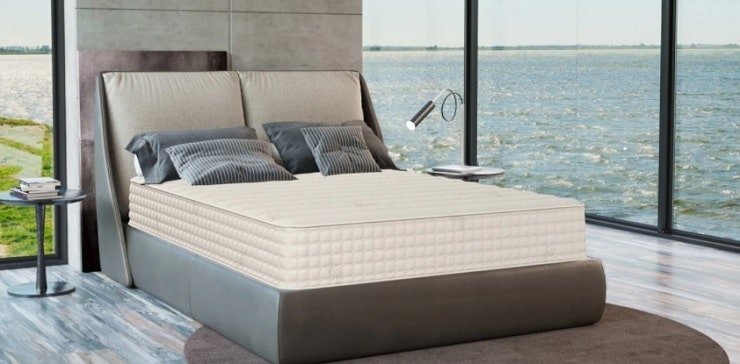
The PlushBeds Botanical Bliss is the best mattress for adult and teens autistic sleepers because it is very quiet, softens motion transfer, is low in odors, is toxin-free, can regulate your temperature, is strong and durable, and can provide soothing pressure relief to help combat the heightened sensitivities that make it difficult for us autistic sleepers to fall asleep and avoid waking up throughout the night.
Mattresses and Beds for Autism If like me, you are extremely sensitive to sounds and movement, I recommend adding the Plush Beds Orthopedic Foundation and Quiet Balance Bed Frame to your order to make your bed practically silent.
If you’re looking to treat additional conditions such as sleep apnea, acid reflux, snoring, or back pain, the PlushBeds M555 Adjustable Base may be a better option because you can manipulate the frame to facilitate your ideal sleeping/relaxation position.
To learn more, read my PlushBeds bed frame/foundation and Botanical Bliss mattress reviews below.
Specs
- Type: certified organic latex mattress (all foam – no springs).
- Thickness options: 9, 10, or 12-inch profiles.
- Firmness options: medium or firm.
- Cover materials: knitted organic cotton and organic wool (GOTS certified).
- Comfort layer: GOLS-certified organic latex foam.
- Support layer: GOLS-certified organic latex
- Size options: twin, twin xl, full, queen, king, Cal. king, split king, split queen, split Cal. king.
- Place of manufacture: handcrafted in the USA.
Specific Mattresses and Beds for Autism
Silent – the PlushBeds Botanical Bliss mattress has no springs and is entirely made of latex foam, which does not make any noise when moved. This can be useful if you are hypersensitive to sounds and can’t stand the annoyance caused by creaking springs.
Dampens movements – If you sleep as a couple and one (or both of you) are highly sensitive to the shock waves that transfer through the mattress as your partner shuffles around at night or sits on the mattress, the all-foam design should be less of a problem than a regular spring mattress because the all-foam design soaks up movements very well.
Low odors – If you’re also sensitive to smells (again, one of my more prominent autistic traits), this mattress should not cause an olfactory overload because the natural organic latex is virtually odorless and doesn’t contain the offensive chemicals that many memory foam mattresses do. The GreenGuard Gold certification indicates that the mattress has met stricter criteria to ensure that odor-causing VOCs (volatile organic compounds) are kept to a minimum, making the mattress suitable for more sensitive people (including the elderly and children too).
No toxins – the Botanical Bliss is Oeko-Tex Standard 100 Certified, which means that the mattress is ‘harmless to human health’ and doesn’t contain toxins, allergens, and irritants like mercury, lead, or PBDE flame retardants.
Cooling – Because organic latex is highly breathable, if you’re sensitive to overheating or sweating at night, you should be able to experience a more stable temperature because the latex foam’s pinhole design means that the warmer air inside the mattress is replaced with cooler ambient air as you switch positions.
Organic latex is one of the strongest and most durable foams available in a mattress, meaning it can withstand more friction and wear and tear than cheaper polyfoams.
Soothing pressure relief – For autistic sleepers, getting to and staying asleep are the most difficult challenges. This is where adaptive latex foam can help because, by adapting to your unique contours, it can help to dissipate pressure on the more angular regions of your body, which may be contributing to delayed sleep onset and nighttime waking.
Recommended For
Side sleepers – If you weigh more than 130 pounds and sleep on your side, the medium firmness option should be your best bet because the surface tension of the mattress will be relaxed enough to allow your shoulders and hips to sink into the foam while still providing enough pushback to keep you in good posture.
Front sleepers – If you sleep on your stomach or front and weigh between 130 and 230 pounds, the medium option should be sufficient. If you weigh more than 230 pounds, you may prefer the firm option because the increased surface tension may prevent you from sinking too far into the mattress and experiencing back pain.
Back sleepers – If you sleep on your back, the medium option should provide adequate support and pressure relief if you weigh between 130 and 230 lbs, while the firmer option may be preferable if you’re heavier to avoid sinkage.
If you toss and turn at night, the medium firmness should provide the right amount of surface tension to allow for a smooth transition between sleeping positions without getting bogged down in the foam. If you weigh more than 230 pounds, you might want to consider the firm feel for even more buoyancy.
Considerations
Allow the mattress to air – Even though this mattress should be odor-free, I would still recommend letting it air out for at least 24 hours in a well-ventilated room before sleeping on it to allow any VOCs (volatile organic compounds) to dissipate.
Side sleepers weighing less than 130 pounds – If you’re a lightweight side sleeper weighing less than 130 pounds (especially if you have a low body fat percentage), you might find the medium level of firmness a little too firm. In that case, I recommend the soft Natural Bliss because it allows you to sink deeper into the materials for greater comfort.
Wool sensitivities – If you are allergic to wool, I recommend the Natural Bliss mattress, which is vegan, wool-free, and free of animal by-products.
More Benefits
- When you buy directly from the PlushBeds website using the button below, you can try out the Botanical Bliss mattress for 100 nights and return it if you’re not satisfied.
- A 25-year warranty protects you against qualifying defects for up to a quarter-century.
Compatible Orthopedic Foundation
Mattresses and Beds for Autism If you’re sensitive to sounds and movement, make sure your Botanical Bliss mattress is placed on a solid bed frame to reduce creaks and noises as you move.
In that case, I recommend that you add the PlushBeds Orthopedic Foundation to your order because it is a strong foundation that can support up to 1200 lbs of weight and provides more stability and less noise than a traditional box spring.
Mattresses and Beds for Autism when purchasing a bed for someone with autism who is prone to aggressive “meltdowns” that may put the bed under a lot of strain, a strong foundation is also important.
Compatible ‘Quiet Balance’ Bed Frame
I recommend pairing the PlushBeds Quiet Balance Bed Frame with the Orthopedic Foundation (a foundation or box spring is required) to go with your Botanical Bliss mattress if you want to take sound minimization to the next level and eliminate motion isolation while warding off back pain via head-to-toe support.
Because the advanced polymer resin absorbs sound and provides edge-to-edge support between the mattress, foundation, and frame.
Compatible Adjustable Bed Frame
If you need an adjustable bed frame to help you get in and out of bed more easily and manage conditions like back pain, acid reflux, COPD, sleep apnea, and/or snoring, the PlushBeds M555 Adjustable Base may be the perfect frame to pair with your Botanical Bliss mattress.
Because, in addition to the ability to elevate your head and/or feet using the preset zero gravity, anti-snore, lounge, and TV settings, there’s also a relaxing massage feature that may help to calm you down, and soft under-bed lighting so you can get back to your bed at night without turning on the glaring room lights or a bright lamp.
2: Naturepedic Verse – Best For Children
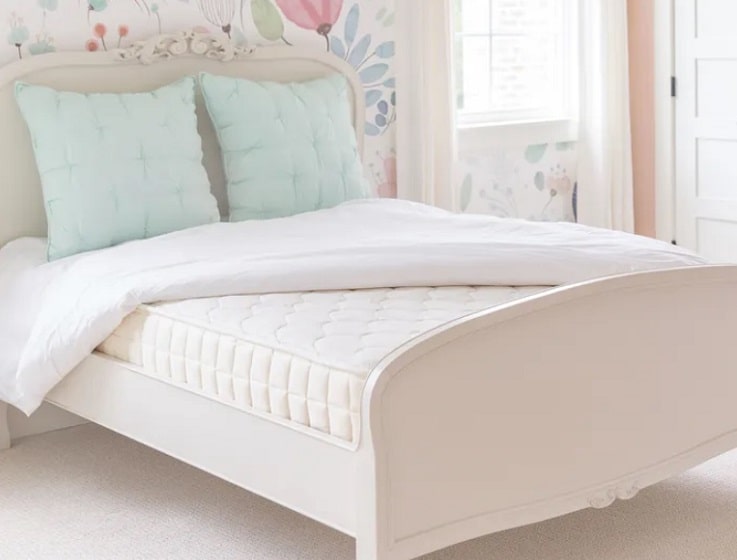
The Naturepedic Verse is the best mattress for autistic children because it is made from organic materials that help eliminate toxins and reduce odors, while the individually encased coils minimize noise and the upper comfort layer can reduce irritating pressure points – plus the cover is waterproof to help guard against spills.
This means that your more sensitive autistic child will be better protected from stimuli that can often cause meltdowns and sensory irritation, interfering with their sleep.
The Naturepedic Verse is appropriate for both younger and older children, and the MADE SAFE®, GreenGuard, and GOTS (Global Organic Textile Standard) certifications provide additional assurance that the mattress is safe and free of toxins.
If you’re looking for a solid foundation, check out the Naturepedic Organic Deluxe Foundation to see the specifications and learn more.
3: Naturepedic 2-in-1 – Best Waterproof Mattress For Toddlers
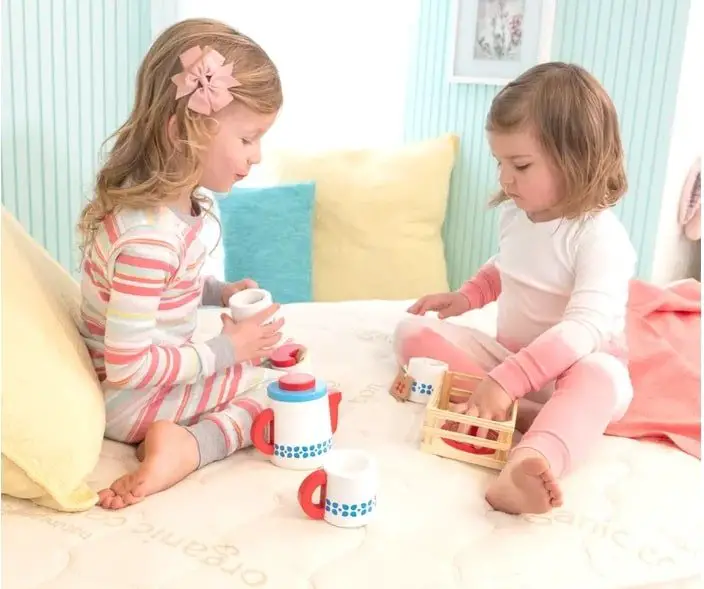
The Naturepedic 2-in-1 Organic Kids Mattress is the best mattress for autistic toddlers and young children because the waterproof side can help if your child wets the bed, while the quilted side can be used for more developed children who require more pressure relief.
The mattress is also made of organic materials and is certified by MADE SAFE®, GreenGuard, and GOTS for quality assurance.
You can also use the Organic Deluxe Foundation as a complementary and stable foundation.
How to buy Mattresses and beds for autism sufferers
Before I go into detail about how to buy a mattress and bed for an autistic adult or child, it’s important to understand how autism affects sleep in these populations.
Autism spectrum disorder (ASD) is a developmental disability that typically manifests in early childhood and has the potential to impair a person’s social skills, speech, and nonverbal communication abilities.
ASD is a catch-all term for several conditions that were previously diagnosed separately, including Asperger’s syndrome, autistic disorder, and pervasive developmental disorder not otherwise specified (PDD-NOS) [8].
As a result, someone with ‘high-functioning autism may present with no obvious symptoms; subtle nuances in their communication, thinking, and problem-solving skills, and a tendency to be hyperfocused on their interests.
While someone ‘further along the spectrum’ may have severe difficulty communicating, maintaining a conversation, and processing stimuli (hypersensitivity to sounds (misophonia), lights, and odors); they may exhibit repetitive movements, extremely rigid thinking, and emotional meltdowns when their routine is disrupted.
Individuals with both mild and severe autism spectrum disorders are prone to sleeping problems, which I’ll go over in more detail now.
Sleep Disturbances in Children With Autism Spectrum Disorder
According to a 2005 study by P. Gail Williams MD et al. from the Weisskopf Center for the Evaluation of Children (University of Louisville), 44-83% of children with autism have sleep problems [9].
To gain a better understanding of sleep in autistic children, the parents of 210 children were polled, and the results revealed that the most frequently reported sleep problems in this affected population included:
- Difficulty falling asleep.
- Restless sleep.
- Inability to fall asleep in their own bed.
- Frequent nighttime waking.
Sleepwalking, crying during sleep, sleep apnea, and nightmares were among the less common sleep disturbances reported in the same group.
Sleep Disturbances in Adults With Autism Spectrum Disorder
According to a 2005 study by Élyse Limoges et al. [10], adults with the autism spectrum disorder (ASD) phenotype had the following sleep disturbances:
- Taking longer to get to sleep.
- Waking up during the night.
- Increased duration of stage 1 sleep.
- Decreased non-REM sleep.
- Decreased slow-wave sleep.
The subjects also had higher ‘trait anxiety scores on the Spielberger Anxiety Scale,’ according to the study.
Practical Implications
According to the research, both autistic adults and autistic children are more likely to have sleep issues.
The most common problems are difficulty falling and staying asleep.
These issues may have practical implications for the type of mattress and bed you should buy for an autistic child or adult, which I’ll go over in more detail below.
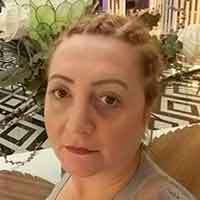
I joined Appartenville in February 2021 as a content editor. After studying English literature at university, I worked as an e-commerce website editor, content author, and purchasing intern for several independent luxury and lifestyle retail companies. My role at Appartenville combines my love, experience, and passion for the world of design and the desire to create inspiring written content. As for my personal style, I am a big fan of color and drawing, especially I like the pastel color scheme. I also enjoy discovering new trends, brands, and products, whether it’s fashion, interior design, or lifestyle my wish list for buying new things is endless.
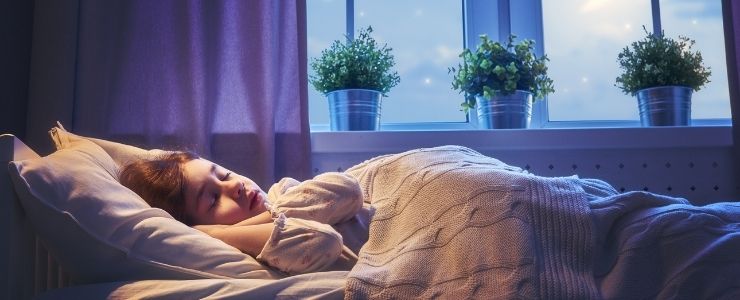
Leave a Reply